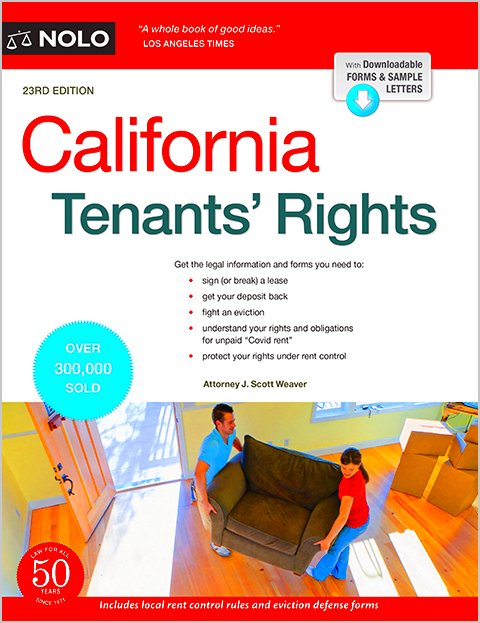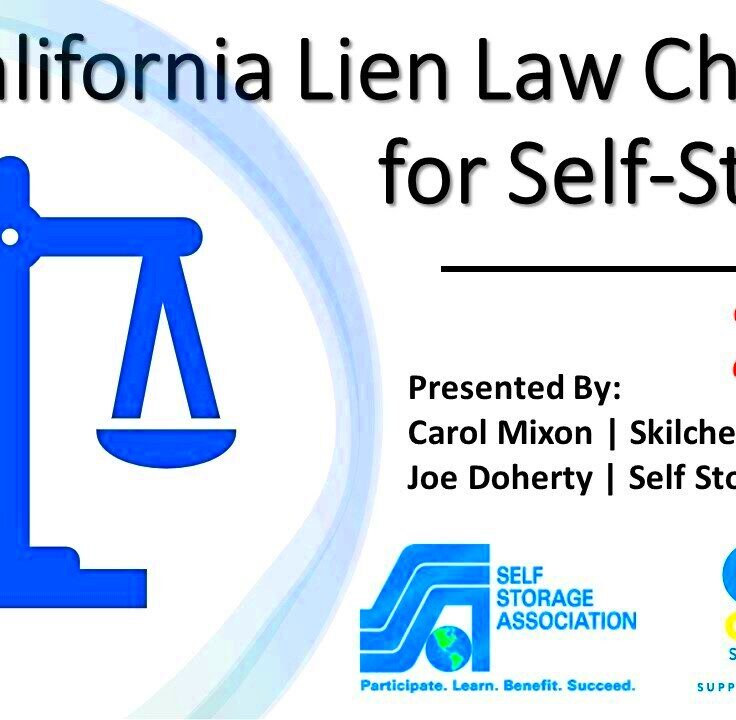California’s Self-Storage Tenant Rights and Lien Law
When you need additional space, it can be a lifesaver; however, self-storage comes with its own challenges. There was one time when I moved from one city to another and rented an apartment of my own. Initially, this appeared to be a good idea but soon I discovered that ignorance of the law could lead to problems. Several tenants in California do not know their rights. In this blog post, I will educate you on your rights in order for you not to get worried about using self-storage facilities.
What Self-Storage Facilities Can and Cannot Do

Occupants of self-storage facilities must be aware of the rules governing what the storage facility can and cannot do. For instance, they cannot enter your unit whenever they want to. I remember a friend who was shocked after discovering that some of her possessions had been relocated within her unit. It happened that the storage facility had accessed her unit without notifying her. Only during emergencies or with prior notice does law allow them to access your unit legally.
Self-storage facilities have a few things they are allowed to do and some that they aren’t allowed to do, here is a brief list:
- Cannot: Enter your unit without permission or emergency reason.
- Cannot: Increase rent suddenly without proper notice.
- Cannot: Auction your items without following the lien process.
- Can: Deny access to your unit if you haven’t paid rent.
- Can: Charge late fees if you miss payments, but these must be reasonable and disclosed upfront.
Knnowing the limits at hand can stop you from being helpless and make sure that you have an honest and open relationship with the organization.
Knowing Your Rights as a Self-Storage Tenant
Tenants have rights that shield them from unfair practices. It is commonly believed that storage units are equivalent to rental apartments, but just like any other things, they have some degree of similarity. However, the rules governing these two forms of housing differ significantly. For instance, self-storage facilities have more leeway with lien enforcement but must still adhere to rigorous legal requirements.
Here are several crucial rights you need to be aware of:
- Right to Privacy: Your unit is your private space. The facility cannot simply access it without your consent, unless in emergencies.
- Right to Proper Notice: If there are changes in terms, such as rent hikes or eviction, you must be given proper notice.
- Right to Lien Protection: If you default on payments, the facility must follow the California Self-Storage Facility Act’s lien procedures before auctioning your belongings.
I recall a little argument I had over a bill error and it was then that I realized how much these rights could spare me from future troubles. So if anything seems suspicious always ask or demand for clarification. The tenant-related regulations act like shields against any unfair actions; thus, it is wise to be aware of them as well as to be on guard all the time.
California Lien Law and How It Affects Self-Storage Tenants
You might have experienced signing a rental agreement for a self-storage space where mention of “lien”, though it could have sounded complicated, is significant. That ought to be understood very well so as to avoid inferences that are wrong. A lien essentially means that if you default then the storage will go ahead and take possession of your goods. It may seem complicated, but I have gone through this already so I understand it well. In a time when money was tight, I had difficulties making my monthly payments and this forced me to learn quickly about lien laws. To know what you should be aware of in such occasions can substantially help your case!
This is basically the way it works:
- Notice of Lien: If you haven’t paid your rent for a while, the facility must send you a notice explaining that they’re placing a lien on your belongings. This notice will include the amount due and a deadline for payment.
- Opportunity to Settle: You have a certain period, often at least 14 days, to pay what you owe and avoid losing your items. Trust me, this grace period can be a lifesaver. It gives you some breathing space to arrange payments.
- Sale of Belongings: If you still don’t pay, the facility can auction off your items. This isn’t something they take lightly—there are strict rules they must follow, including advertising the auction in a local newspaper.
Even though they practice fair process California law and that makes it hard, still there are some emphasized points. There is never a better option than talking to the body which provides the service whenever you can’t afford them. Instead of going directly into selling your property through an advertisement, many would prefer coming up with a payment period.
Steps Self-Storage Facilities Must Follow Before Selling Belongings
You may be shocked to find out that self-storage buildings, do not have the power to dispose of your property the minute you miss your payment. There are set procedures they must follow, created for the sake of both the tenant and the firm. When I was young, I do remember my uncle’s storeroom was almost sold. Only because we understood what to do in that situation we managed to make it.
A brief overview of the points to be considered before a facility can sell your items is given below:
- Preliminary Notice: The facility must send a written notice, usually by mail, to inform you about the pending lien and your outstanding balance. This notice should include a detailed breakdown of what you owe and by when it needs to be paid.
- Public Advertisement: If payment isn’t made, the facility must publicly announce the sale. This is typically done in a local newspaper at least twice, providing the sale date and unit details. This isn’t just for show—it’s a legal requirement.
- Right to Cure: Up until the day of the auction, you can still pay what you owe, plus any additional fees, to stop the sale. I’ve seen people come through at the last minute to save precious family heirlooms this way.
- Auction Process: If no payment is made, the facility will hold a public auction. The sale proceeds go first towards covering the outstanding debt, and any remaining balance should be returned to you, although that doesn’t happen often.
The process is stressful, no doubt about that; however, it is set up in a way that it gives you every chance to get back what belongs to you. Whenever you are caught in this kind of thing, keeping your cool and doing something quickly will help a lot.
How to Resolve Disputes with Self-Storage Facilities
When you have a lot of things stored in and storing these is a big issue for you, therefore, fighting with self-storage facilities may be really annoying. Previously I experienced a charge that was incorrect leading to a discrepancy regarding extra payments for a delayed period. At first it seemed there was nothing that could be done about it, but setting the problem out clearly changed everything. Below are some recommendations in case you ever find yourself in such a situation.
One important rule is to keep track of every communication in writing. In times of passion, one can easily forget what was said by whom. Paper proof could help a lot in future. When I had my issue, I even ensured that all emails and receipts were stored in one folder only.
These are the few steps to resolve a dispute:
- Understand the Terms: Before you reach out, revisit your lease agreement. Knowing what you’ve signed up for can prevent misunderstandings. I once realized I was being charged correctly based on my lease, which saved me an unnecessary argument.
- Communicate Clearly: Contact the facility manager directly. Explain your issue calmly and provide any supporting documents. Most people are reasonable and willing to help if approached politely.
- Seek Mediation: If talking doesn’t resolve the issue, consider third-party mediation. Organizations like the California Self Storage Association can help mediate disputes. This step can make a big difference without escalating things legally.
- Legal Action: If all else fails, you might have to consider small claims court. This is usually the last resort, but it’s there if you need it. I’ve seen cases resolved this way when facilities have been clearly in the wrong.
Most of the time, clear communication and a pinch of patience solve most quarrels. The main thing is to remain composed and- stay on point, irrespective of how annoying the issue might get.
FAQs about California Self-Storage Tenant Rights
Often, there are many questions about self-storage in California that may cause confusion among lessees. From my own experience in self-storage industry, I understand how confused and scare legal stuff can be. Thus, we will try to unravel some of the most common questions so as to help your worry less and be more aware of what you are entitled to.
What happens if I miss a payment?
In case of a missed payment, a notice will commonly be sent by the facility. Generally, there is a grace period where one is required to settle the pending sum and no lien action is instigated during this time. Therefore, it becomes important for any persons who have such kinds of problems to contact the facility concerned.
Can the facility enter my unit at any time?
Indubitably not. The unit that belongs to you alone is termed your private space, which means that the facility cannot encroach upon it except in cases of emergencies albeit with consent. I once had a friend who had her possessions relocated without her approval by someone she trusted. It so happened that there were no protocols adhered to as far as the facility was concerned.
What do I do if my belongings are sold due to a lien?
If you have lost personal properties, then you may ask for an itemization of the sale earn. This means that the extra money left after paying back your loans is automatically given back to you according to California Law. Most times however, this doesn’t happen but it is still one of your entitlements.
How can I file a complaint against a self-storage facility?
For you to understand your rights, once you suspect they have been infringed, consider putting all these facts down and reporting them to the California Department of Consumer Affairs. The agency can assist you in determining what to do next like whether to go for mediation or file a lawsuit.
Moving through the rough waters of self-storage rights can be easier if you understand well the common questions that surround them. Always stay in touch with your facility management personnel and when in doubt, do not hesitate to seek clarification.
Conclusion on Protecting Your Rights as a Self-Storage Tenant
It is vital to be aware of your rights in the self-storage world. When you have proper information and act promptly, it becomes possible to safeguard your property as well as get right treatment. Always remember that keeping an open line of communication with the facility is important; do not hesitate to seek help in case of challenges. Handle your possessions with care and demand they are treated equally.


